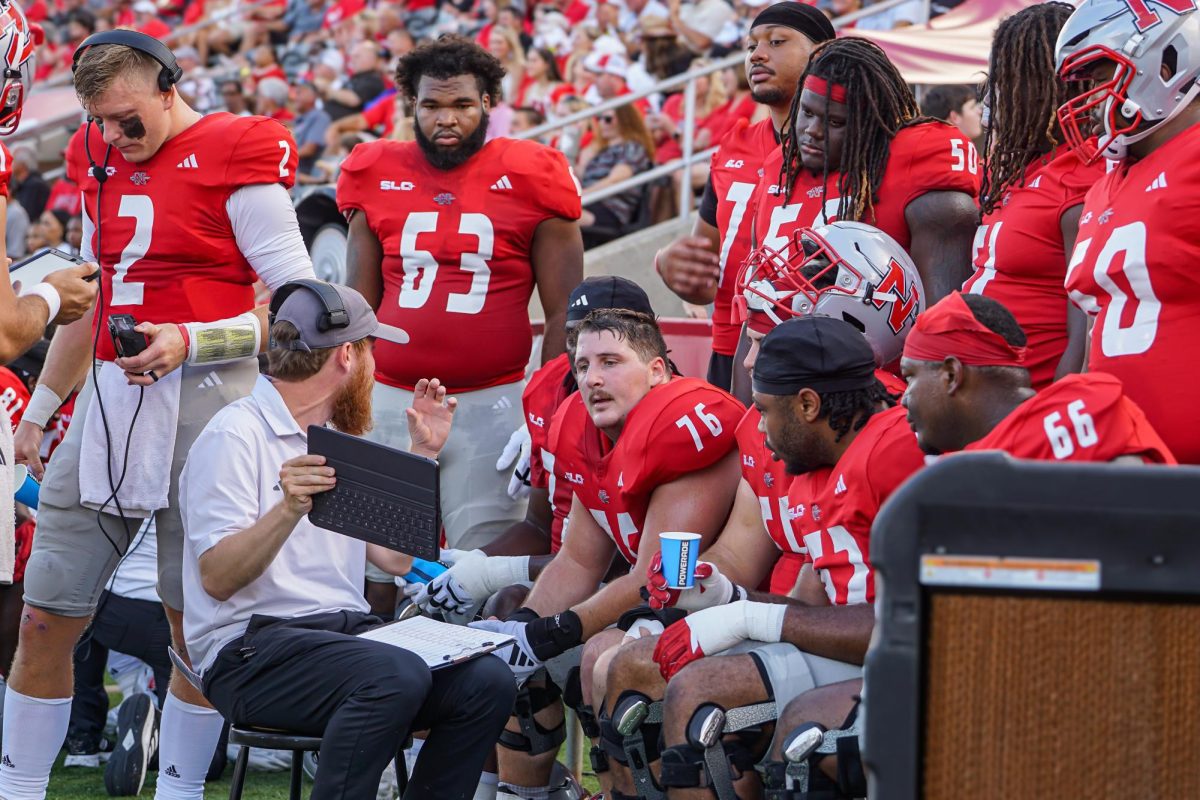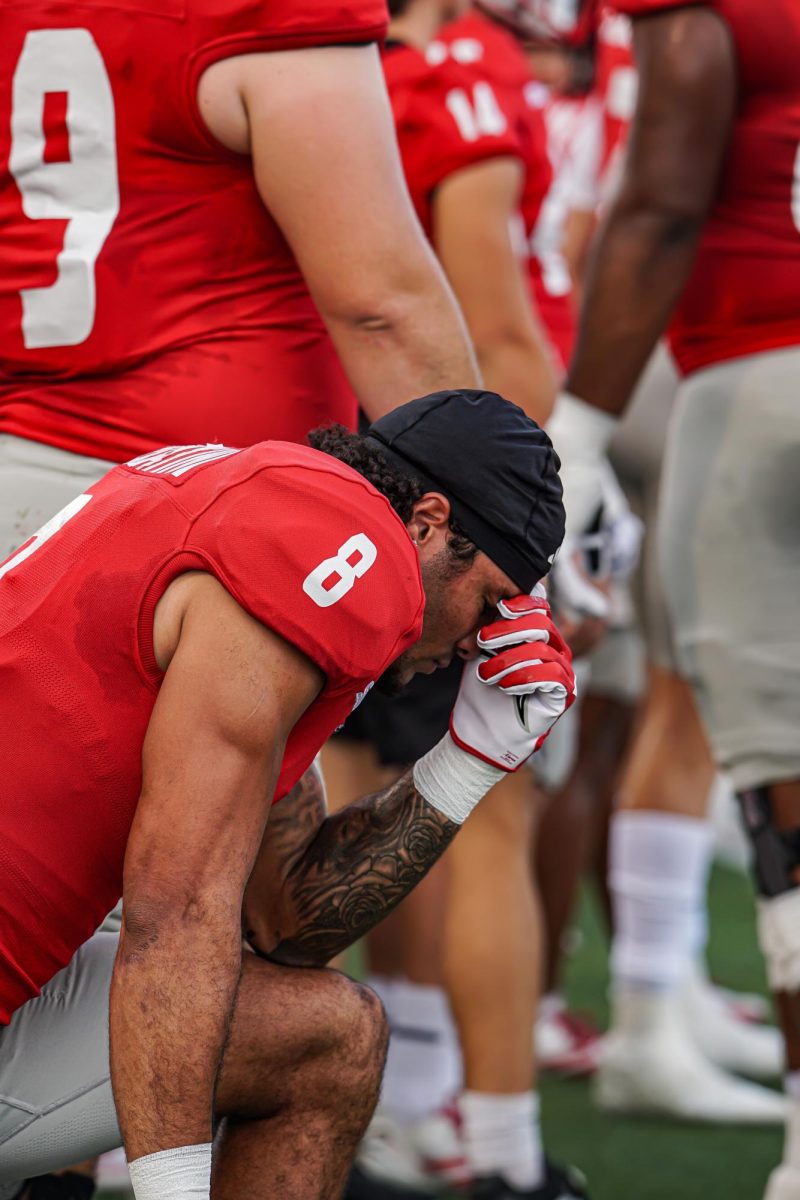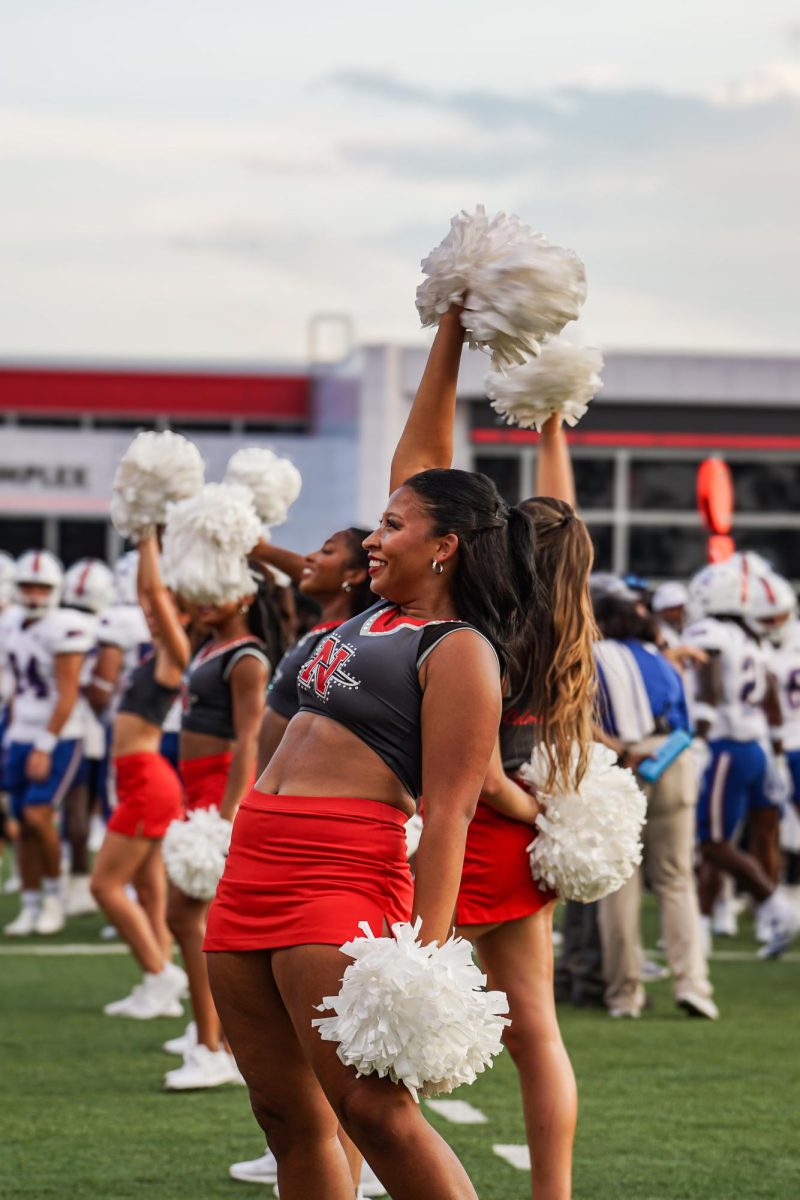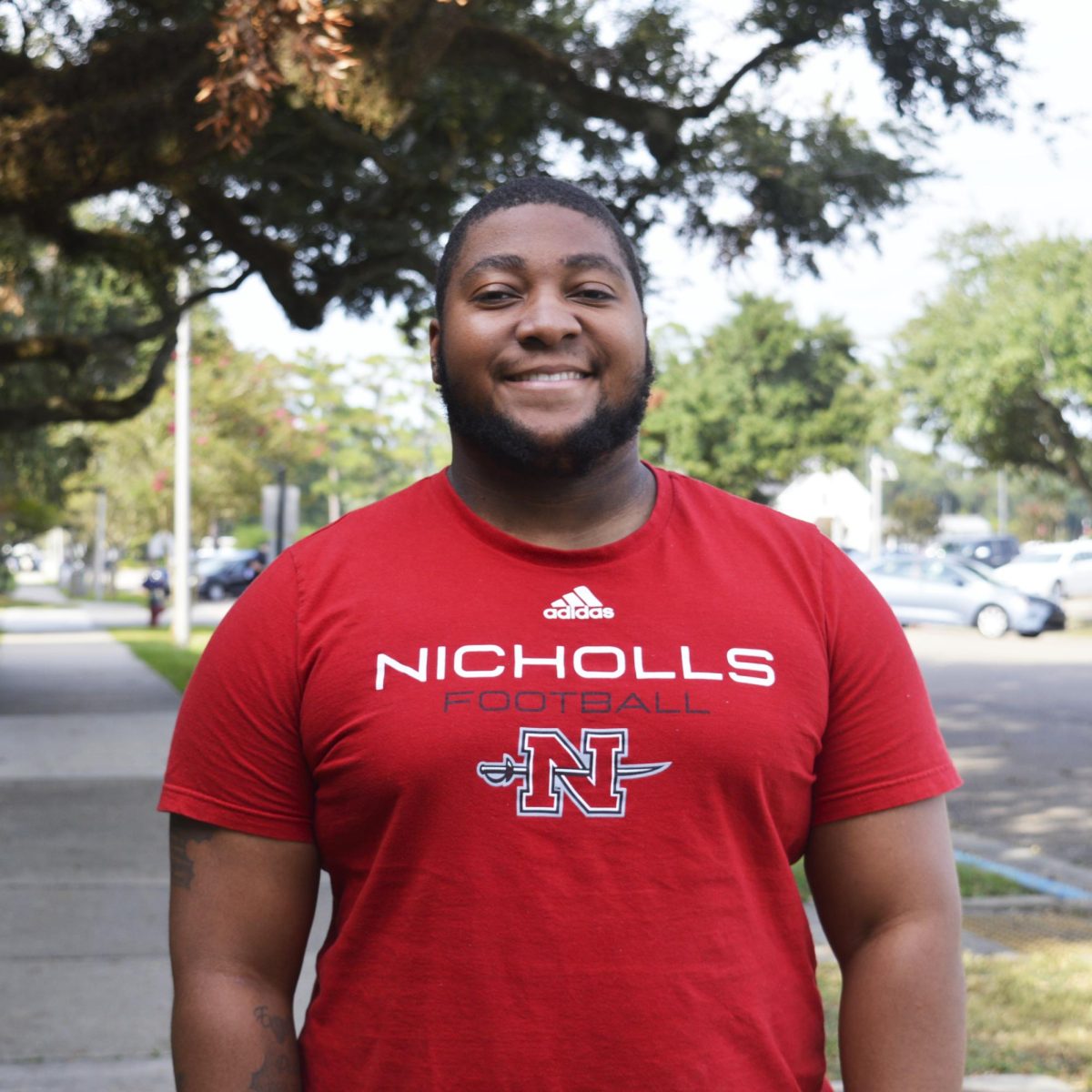When people mention sports coaches, many immediately think of the head coach. However, there is a group that often goes unnoticed but has a tremendous impact on the athletes’ performances.
This group is the strength and conditioning coaches.
Nicholls has two strength and conditioning coaches, Head Strength and Conditioning Coach Frank Bourgeois and Assistant Strength and Conditioning Coach Graham Wolfe.
Coach Bourgeois’ Background

Bourgeois is a native of Louisiana, born in New Orleans. Bourgeois said that after graduating from college, he wasn’t competitive in the medical field.
He moved to Dallas, Texas, after college. There, he worked “odd jobs” such as UPS, before falling into strength and conditioning at SMU, where he worked for two and a half years.
Bourgeois said he got an opportunity to coach at LSU during the day, while working in a gym at night.
He then got his first head job at a D2 school called Midwestern State, where he coached his brother. Bourgeois then went to New Zealand for four years and got his PHD.
In 2021, Bourgeois received a call from then Nicholls head coach Tim Rebowe telling him to come join his staff.
Coach Bourgeois’ Story
When comparing Nicholls to the places he had previously been, Bourgeois said, “Of all the places that I’ve been, Nicholls tends to be very community-based,” he continued, “things are very tight-knit, it’s very much a family atmosphere.”
Bourgeois told a success story of an LSU running back that he coached, named Steven Ridley. Ridley’s knee was pretty much totaled, but Bourgeois was able to get him back up to speed and involved in team activities. He called this his first “BAM moment.”
One of the hardest things a strength and conditioning coach deals with is pushing athletes to their limits while also preventing injury. When asked about the process of doing that, Bourgeois said it boils down to knowing the athlete.
“It’s knowing the athletes. You’re constantly in communication with them, asking ‘how are you feeling?’ and over time you get to know an individual physically and mentally.”He continued, “It can be difficult, but you have to have that wisdom and experience to know that sometimes you have to back off.”
Bourgeois believes that what happens behind the scenes of strength and conditioning is what makes it so valuable.
He said, “It’s the things that they don’t see.” He continued that those who watch the games only see the result on competition day, not the weekly grind that those athletes and coaches have to go through.
That is what makes strength and conditioning coaches so important; they are the ones who plan those schedules and execute those plans.
Bourgeois is a traditional coach who believes in hard work, consistency and dedication. He prides himself on the mental toughness that he instills in his athletes.
“It’s everything! The way that we go about cultivating that is, the guy who leaves the weight room is better than the guy who came in.”
Bourgeois exhibits these qualities in all aspects of his life; his faith, his family and his career.
Coach Wolfe’s Background
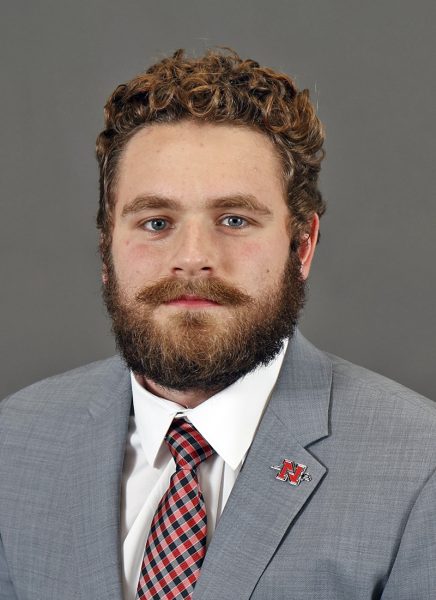
Wolfe is a Native of Texas, born in Dallas. Wolfe got his start at Catholic High School under two-time Olympic weight lifter Matt Bruce.
After roughly a year there, Wolfe moved up to LSU. There he coached men’s basketball, soccer, swimming and beach volleyball for that whole year.
Wolfe got his opportunity to come to Nicholls roughly four months ago. He was certified in June and was just waiting for the call.
Coach Wolfe’s story
When comparing Nicholls to other LSU, Wolfe said the biggest difference is the money. LSU’s program is more lucrative than Nicholls, with six different weight rooms, high-tech gear and technology.
This included AI.
For Wolfe, this is not entirely bad, as it gives the coaches and players more of an interpersonal connection. Coaches are required to pay more attention to the individual athlete as the technology at Nicholls can not do it for them.
When asked about the adjustment, he said, “It’s more of the ‘Coaches eye’ where you can see how fast the bar is moving and things like that,” he continued, “it’s being like that was fast or that was slow but having to do that with my own eye.”
Wolfe got into strength and conditioning to “better people.” He told a story of success with the Nicholls volleyball team this year. After going 7-20 last season, the volleyball team is already up to nine wins this season with only one loss.
Wolfe believes that it’s important to tailor to athletes’ specific needs within their sport to achieve the best results.
He said, “Whenever I take on a sport, we do a needs analysis. What does this sport do?” Wolfe continued and said being able to do a needs analysis allows them to then build plans for athletes around that.
Wolfe said that the key to pushing players to be their best while preventing injuries is to lay a good foundation. They do this by working very hard in the off-season so that when competition time comes, all they have to do is maintain what they have already built.
Wolfe said that one of the biggest misconceptions is that people confuse them with athletic trainers or nutritionists.
However, strength and conditioning coaches do a lot behind the scenes.
Wolfe spoke to the difference between in-season and off-season training. He said, “During the off-season it’s a lot more busy,” he continued, “we’re going an hour each group, but once you get in season it’s like 30 minutes.” He finished with this, “I can finally take the foot off the gas.”
Wolfe spoke about setting a good foundation to help athletes achieve their best.
Strength and conditioning coaches are the foundation of an athletic program.



